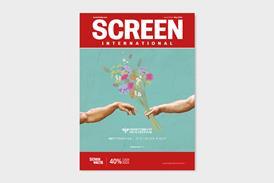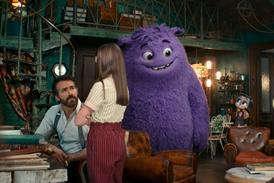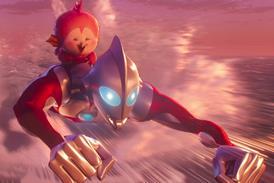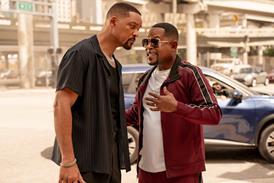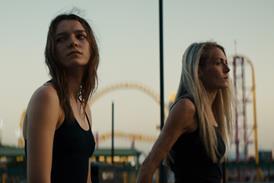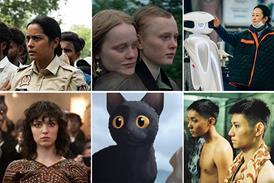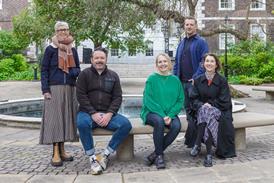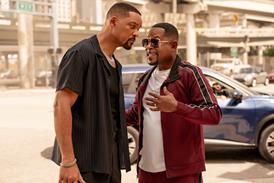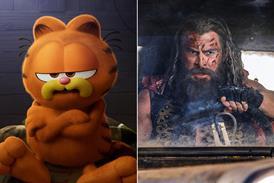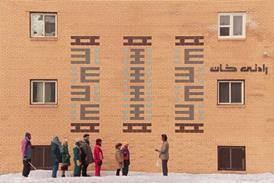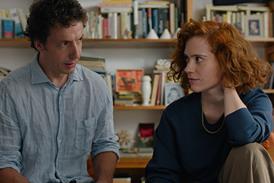Quentin Dupieux’s meta-commentary on the future of filmmaking is a flimsy Cannes opener
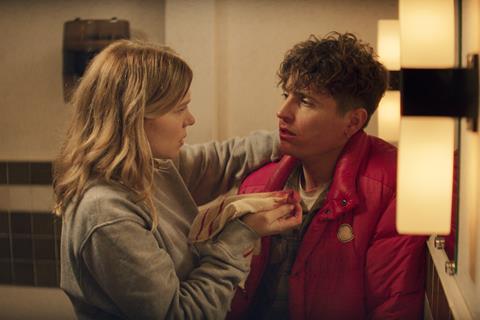
Dir/scr: Quentin Dupieux. France. 2024. 81mins
Writer-director Quentin Dupieux’s playful new film belies his deep worries about cinema’s future. The meta-comedy The Second Act is ostensibly about a rocky romantic relationship between a man and a woman — the man wants out, hoping to pawn her off on his best friend — but it soon becomes apparent that the characters are aware that they are inside a film, and a banal one at that. Lea Seydoux, Vincent Lindon, Louis Garrel and Raphael Quenard commit fully to this cheeky postmodern exercise, but neither the humour nor the commentary is incisive enough to sustain such a strained bauble.
Promises more than it delivers
Releasing in France the same day as it opens the Cannes Film Festival, The Second Act plays like a bittersweet state of the cinematic union, viewing the egos, pretensions and cliches of the film industry from an affectionately bemused perspective. The picture’s stars could help attract savvy filmgoers intrigued by its deconstruction of the filmmaking process. But this remains a niche commercial prospect that promises more than it delivers.
Garrel and Quenard (the lead in Dupieux’s Locarno title Yannick) play David and Willy, who are walking to a diner called The Second Act where they will meet David’s infatuated girlfriend Florence (Seydoux) and her father Guillaume (Lindon). David asks his friend Willy to take Florence off his hands, explaining that he does not find her attractive. Willy is confused. What’s wrong with her? he asks. Is she trans? Willy’s insensitive comment prompts a sharp rebuke from David, who chastises him for saying such offensive things while they are making a film. Meanwhile, Guillaume informs his daughter that he can no longer speak the terrible dialogue he has been given — an actor of his pedigree should not be made to deliver such drivel.
Once The Second Act’s conceit is clear, there is intermittent enjoyment to be had in watching how Dupieux develops the concept. Each of the four occasionally break from their scripted lines to complain about the film or their co-stars’ unprofessionalism. (Beyond transphobic comments, the cast members will engage in other inappropriate behaviour, including one actor accusing another of unwanted romantic advances.) Valiantly, though, they try to get through the film’s contrived rom-com premise, which only leads to a series of arguments and meltdowns — not to mention a run-in with an incompetent extra (Manuel Guillot) who is too nervous to execute his one scene.
Dupieux’s trademark impishness is only sporadically effective, extending certain comedic riffs far past their breaking point. (In general, the characters’ transphobic, homophobic and MeToo remarks fall like lead balloons because it is never clear if Dupieux is satirising repellant attitudes, or simply revelling in the politically-incorrect humour.) The rules concerning the film-within-a-film tend to be frustratingly arbitrary, and Dupieux’s observations about vain actors and formulaic cinema are rarely cutting.
Because the cast is so compelling, never winking at this story’s meta nature, the film holds together despite its shaky foundation. Seydoux is especially delightful as an actor who frequently explodes because she is the only one taking this project seriously — although Florence herself may not be a great thespian. And the reveal that the film we’re watching is the first made by Artificial Intelligence sends The Second Act into troubling, ruefully funny terrain once the cast must start interacting with the ’filmmaker’.
Ultimately, Dupieux’s doodle is less humorous than it is despairing, lamenting the glory of cinema being assaulted on all sides — whether because of an indifferent audience, French actors who would rather work in America, or soulless technology supplanting human expression. But one wishes this provocateur could have constructed a better provocation. His film about cinema’s paucity of new ideas is, disappointingly, lacking in that very regard.
Production companies: Chi-Fou-Mi Productions, Arte France Cinema
International sales: Kinology, contact@kinology.eu
Producer: Hugo Selignac
Cinematography: Quentin Dupieux
Production design: Joan Le Boru
Editing: Quentin Dupieux
Main cast: Lea Seydoux, Vincent Lindon, Louis Garrel, Raphael Quenard, Manuel Guillot


